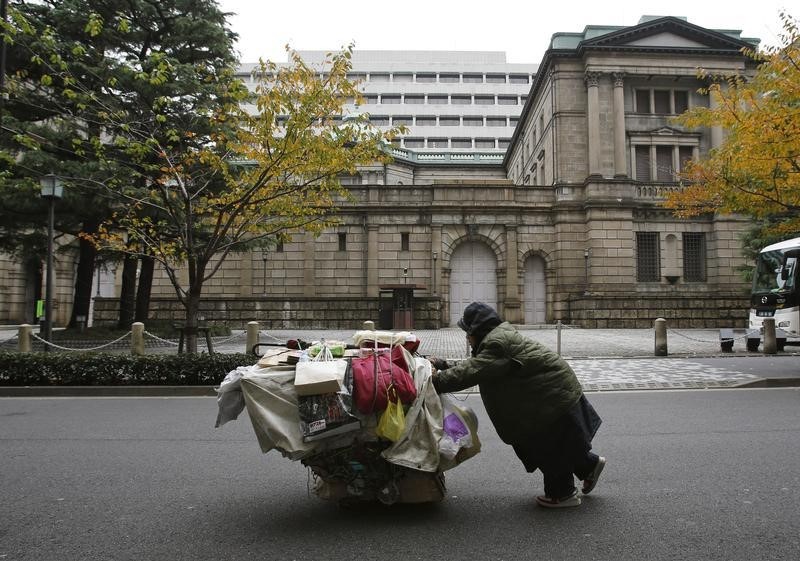By Tetsushi Kajimoto
TOKYO (Reuters) - Big Japanese manufacturers grew less optimistic in October-December and foresee conditions worsening in the following quarter, a government survey showed on Wednesday, suggesting that the economy's recovery from recession will be slow.
The joint quarterly poll by the Ministry of Finance and the Cabinet Office also indicates that the central bank's key tankan survey due to be released on Dec. 15 may show little improvement in business sentiment in the final three months of this year.
The poll showed that companies are becoming less positive on business investment, not a good sign for Prime Minister Shinzo Abe's pro-growth policies.
Regardless, Abe is expected to win comfortably a snap election on Sunday, to refresh his mandate to pursue reflationary policies, dubbed "Abenomics".
The business survey index (BSI) of sentiment at large manufacturers stood at 8.1 in October-December, compared with 12.7 in the prior three months. The index is expected to slide further to 6.1 in January-March.
"The data reflects scepticism about a domestic demand-led recovery amid lingering effects of April's tax hike and sluggish wages," said Koichi Fujishiro, an economist at Dai-ichi Life Research Institute.
"The BOJ's tankan may not turn out so poor though as it was taken later than this survey, likely reflecting more positive effects of recent yen weakness, higher share prices and falling oil prices."
Japan's economy slipped into a recession in the third quarter after a sales tax hike in April clobbered consumption and chilled broader activity.
Highlighting the fragility of the world's third largest economy, consumer confidence slid for a fourth straight month in November, a separate government survey showed.
The latest survey follows the Reuters Tankan, which strongly correlates with the BOJ's tankan. The Reuters poll showed an uneven recovery after April's tax hike, with manufacturers' mood sliding and the service-sector mood bouncing.
A timid result in the BOJ survey, which has been forecast to stay largely flat in the fourth quarter, could cast further doubt on the bank's rosy economic forecasts. Falling oil prices are expected to force the BOJ to cut its inflation forecasts, making its 2 percent goal even harder to meet.
The BSI survey showed that companies plan to raise capital spending by 4.9 percent in the current business year to March 2015, against a 5.7 percent gain seen in the prior poll.
The quarterly survey showed sentiment among big non-manufacturers also slipping to 3.4 from 10.2 in July-September, bringing the overall mood among big firms to 5.0.

The service-sector mood is seen rising to 4.5 in January-March, and overall big business sentiment is seen unchanged.
(Editing by Shri Navaratnam and Simon Cameron-Moore)